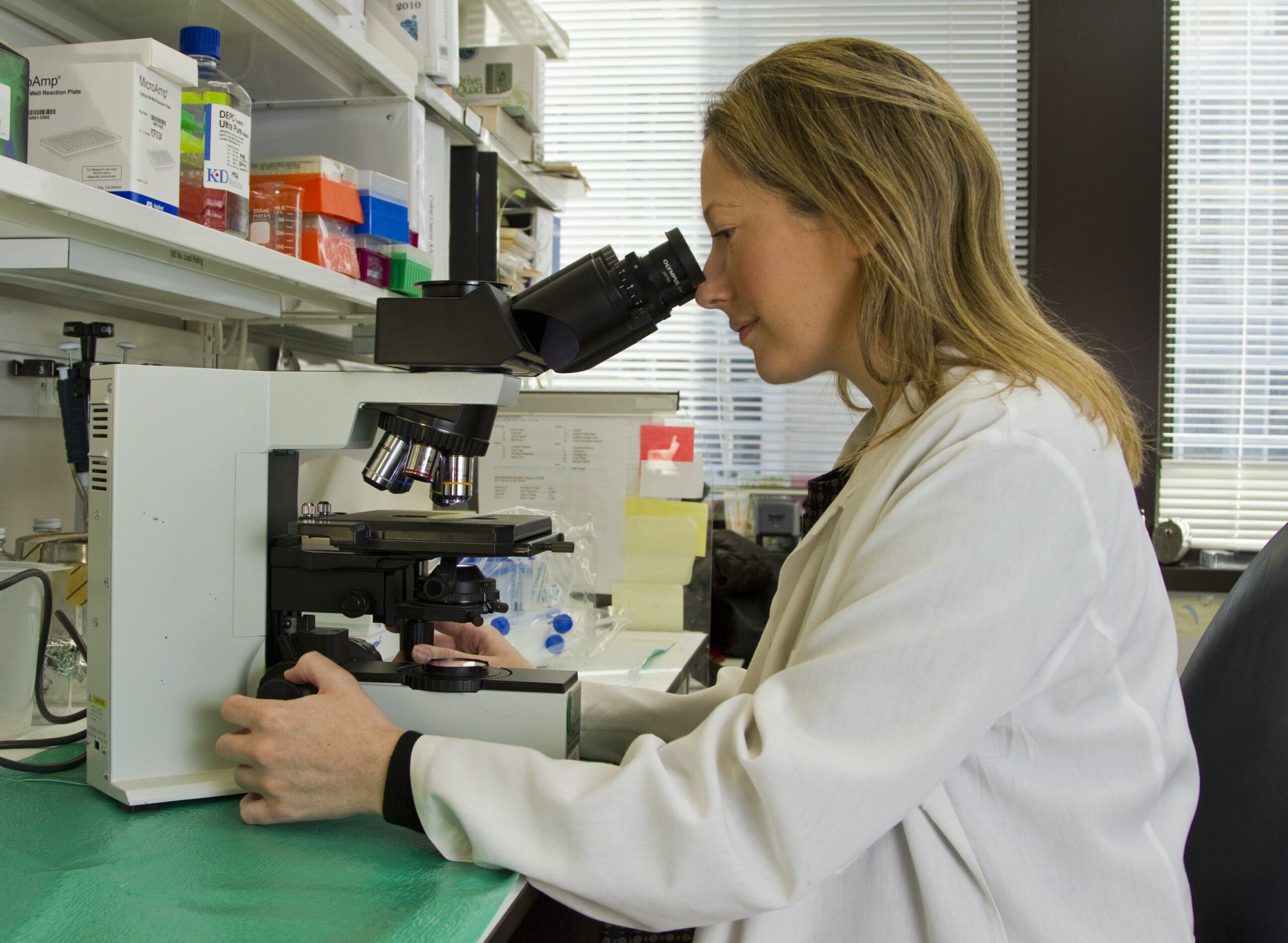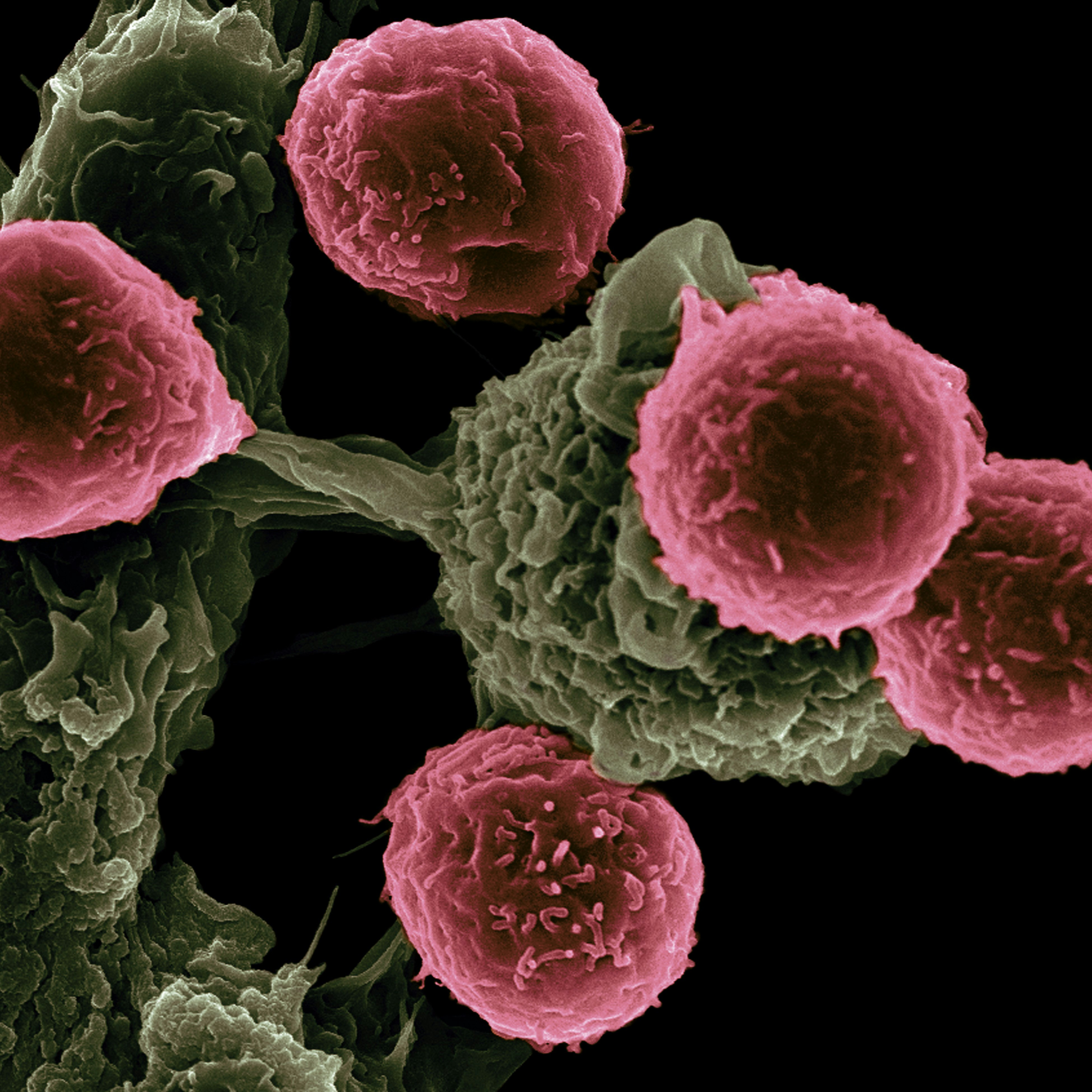Have you ever wondered about the role that genetics plays in prostate problems? From benign prostatic hyperplasia (BPH) to prostate cancer, the influence of genetics cannot be overlooked. This article aims to shed light on the connection between your genetic makeup and the development of prostate issues. By understanding the role of genetics in prostate problems, you can be better equipped to make informed decisions regarding your health and potentially take preventive measures. So, let's delve into the fascinating realm of genetics and its impact on prostate health.

Understanding Prostate Problems
Overview of prostate problems
Prostate problems can encompass a variety of conditions that affect the prostate gland, a small walnut-shaped organ located below the bladder in men. These issues can range from benign conditions that cause discomfort, such as benign prostatic hyperplasia (BPH), to more serious conditions like prostate cancer. It is important to understand the role of genetics in prostate problems, as it can provide valuable insights into the development, diagnosis, and treatment of these conditions.
Common types of prostate issues
Two of the most common types of prostate problems are prostate cancer and benign prostatic hyperplasia (BPH). Prostate cancer is the second most common cancer among men worldwide, with a significant genetic component. On the other hand, BPH is a noncancerous enlargement of the prostate that commonly affects older men. While both conditions have different characteristics, they can both be influenced by genetic factors, making genetic research crucial in understanding their development and progression.
Signs and symptoms of prostate problems
Prostate problems may present with a variety of signs and symptoms. For prostate cancer, early-stage symptoms may include difficulty urinating, blood in the urine or semen, and frequent urination, while late-stage symptoms can involve bone pain and weight loss. BPH, on the other hand, can cause symptoms such as frequent urination, weak urine flow, and the need to urinate during the night. Identifying these signs and symptoms is important in seeking medical attention, and understanding the role of genetics can help in the early detection and management of prostate problems.
Basics of Genetics
Definition of genetics
Genetics is the field of science that focuses on the study of genes, heredity, and the variations in organisms caused by genetic factors. Within the context of prostate problems, genetics involves exploring how certain genes and their variations influence the development, progression, and treatment outcomes of these conditions. By understanding the genetic components, researchers aim to identify potential targets for intervention and develop personalized approaches to prostate problem management.
Brief overview of genes and chromosomes
Genes are segments of DNA that provide instructions for the development and functioning of all living organisms. These genes are organized on chromosomes, which are structures within the cells that carry genetic information. In humans, there are typically 46 chromosomes arranged in pairs, with 23 inherited from each parent. Understanding the structure and function of genes and chromosomes is fundamental in unraveling the genetic basis of prostate problems and their inheritance patterns.
How genes are passed from parents to children
When a baby is conceived, they inherit a unique combination of genes from their parents. Each parent contributes 23 chromosomes, including the sex chromosomes (X and Y), which determine the child's sex. The genes on these chromosomes interact and combine to determine various traits, including the risk of developing certain medical conditions like prostate problems. Understanding how genes are passed from parents to children is essential in comprehending the hereditary aspects of prostate problems and can aid in identifying individuals at higher risk.
Genetics and Prostate Cancer
Genetic mutations linked to prostate cancer
Prostate cancer can arise from genetic mutations or changes that occur in certain genes. These mutations can alter the normal functioning of genes responsible for regulating cell growth and division, leading to the uncontrolled growth of prostate cells and the development of cancer. Several genes, such as BRCA1, BRCA2, and HOXB13, have been identified to have associations with an increased risk of prostate cancer. Studying these genetic mutations is crucial in understanding the underlying mechanisms of prostate cancer and developing targeted therapies.
Inherited genetic syndromes and prostate cancer
Inherited genetic syndromes, such as hereditary breast and ovarian cancer syndrome (HBOC) and Lynch syndrome, can also increase the risk of prostate cancer. Individuals with these syndromes carry specific genetic mutations that predispose them to multiple types of cancers, including prostate cancer. In families where these syndromes are present, genetic counseling and testing can provide valuable information about an individual's risk of developing prostate cancer and guide appropriate screening and prevention strategies.
Risks of developing prostate cancer due to genetics
Genetics plays a significant role in determining an individual's risk of developing prostate cancer. Men with a family history of prostate cancer, particularly in first-degree relatives (e.g., father or brother), have an increased risk of developing the disease themselves. The risk is further heightened if multiple family members are affected or if the diagnosis occurred at a younger age. Having a better understanding of these genetic risks can help healthcare professionals tailor screening recommendations and implement early detection strategies for those at higher risk.
Genetics and Benign Prostatic Hyperplasia
Association between genetics and benign prostatic hyperplasia
Genetic factors also contribute to the development of benign prostatic hyperplasia (BPH), a condition characterized by an enlargement of the prostate gland. Studies have identified various genes that may be involved in the regulation of prostate cell growth and the development of BPH. By uncovering these genetic associations, researchers can gain insights into the underlying mechanisms of BPH and potentially identify novel therapeutic targets.
Genetic factors contributing to benign prostatic hyperplasia
Genetic factors influencing BPH may involve variations in genes responsible for hormone metabolism, inflammation, and cell proliferation. For example, genes involved in androgen metabolism, such as the androgen receptor gene, have been implicated in BPH development. Additionally, genes associated with immune response and inflammation have also been linked to BPH. Understanding the genetic factors contributing to BPH can aid in identifying individuals at higher risk and exploring innovative treatment options targeting those specific pathways.
Managing benign prostatic hyperplasia with known genetic predisposition
Knowing the genetic predisposition to BPH can be useful in managing the condition effectively. Individuals with a family history of BPH can benefit from early screening, lifestyle modifications, and regular monitoring to detect any potential changes in prostate size or function. By understanding the genetic underpinnings of BPH, healthcare professionals can provide personalized treatment plans that address the specific risks and needs of each individual.

Genetic Testing for Prostate Problems
Benefits of genetic testing
Genetic testing offers several benefits in the context of prostate problems. It can provide individuals and their healthcare providers with valuable information about their genetic predisposition to develop prostate cancer or BPH. This knowledge enables proactive measures such as increased screening, early detection, and personalized treatment plans. Genetic testing can also help identify individuals who may benefit from participating in clinical trials for new treatments or prevention strategies.
Types of genetic tests for prostate problems
There are different types of genetic tests available for prostate problems, each targeting specific genetic mutations or variations. These tests may involve analyzing specific genes, such as BRCA1 and BRCA2, or assessing multiple genes associated with prostate problems. Genetic tests can be performed using a sample of saliva, blood, or tissue, and the results can help guide treatment decisions and provide critical information for developing personalized care plans.
Interpreting the results of genetic tests
Interpreting genetic test results for prostate problems requires expertise and understanding. Positive test results may indicate an increased risk of developing prostate problems, while negative results do not necessarily exclude the possibility. Genetic counseling is often recommended to help individuals and families interpret and understand the implications of the test results. Genetic counselors can provide guidance, support, and help individuals make informed decisions regarding their prostate health.
Role of Family History in Prostate Problems
Influence of family history on prostate problems
Family history plays a significant role in prostate problems. Having a close family member, such as a father or brother, with prostate cancer or BPH increases the likelihood of developing these conditions. The shared genetic and environmental factors within families contribute to the increased risk. Understanding the influence of family history helps identify individuals who may benefit from earlier screening, monitoring, and preventive measures.
How family history indicates genetic risk
Family history serves as an important indicator of genetic risk for prostate problems. Patterns of multiple affected family members, younger age at diagnosis, or the presence of specific genetic mutations in the family can provide valuable information about an individual's likelihood of developing prostate problems. Healthcare professionals can utilize this information to develop personalized screening and prevention strategies and recommend genetic testing when appropriate.
Importance of knowing family history in managing prostate health
Knowing and understanding your family history is crucial for managing prostate health effectively. By acknowledging the potential genetic risks associated with prostate problems, individuals can make informed decisions about their lifestyle choices, screening options, and early detection strategies. Additionally, sharing this information with healthcare providers allows for more personalized care and tailored interventions based on individual and familial risk factors.
Risk Factors and Prevention in Genetically Predisposed Individuals
Environmental factors exacerbating genetic risks
In genetically predisposed individuals, certain environmental factors can increase the risk of developing prostate problems. Factors such as diet, obesity, smoking, and exposure to certain chemicals or toxins can interact with genetic variations and contribute to disease development. Identifying and addressing these environmental risk factors is essential in mitigating the overall risk of prostate problems, particularly for individuals with known genetic predispositions.
Lifestyle modifications for prevention
Adopting a healthy lifestyle can play a significant role in preventing prostate problems, especially for those with genetic predispositions. Regular exercise, maintaining a healthy weight, and a balanced diet rich in fruits, vegetables, and whole grains can reduce the risk of developing prostate cancer and BPH. Limiting alcohol consumption, quitting smoking, and protecting oneself from harmful occupational exposures can also contribute to prevention efforts.
Medical interventions for at-risk individuals
Medical interventions are available for individuals at higher risk of developing prostate problems due to genetic factors. For example, in the case of prostate cancer, active surveillance, prostate-specific antigen (PSA) testing, and targeted imaging techniques can help with early detection and monitoring. Medications and surgical interventions may also be recommended to manage symptoms and reduce the risk of disease progression. Genetic information can guide healthcare professionals in determining the most appropriate interventions for at-risk individuals.
Implication of Genetics in Prostate Problems Treatment
Personalized medicine based on genetic information
Genetic information plays a crucial role in the development of personalized medicine for prostate problems. By understanding an individual's genetic makeup, healthcare professionals can identify specific genetic targets that can inform treatment decisions. For example, in prostate cancer, genetic profiling can help determine the most effective therapies and predict an individual's response to certain treatments. This personalized approach aims to maximize treatment efficacy and minimize potential side effects.
Genetics and response to prostate problems treatment
Genetic variations can influence an individual's response to treatment for prostate problems. Different genetic mutations or variations may alter drug metabolism, drug targets, or tumor characteristics, affecting treatment outcomes. Understanding these genetic factors allows healthcare providers to select the most appropriate treatments and optimize therapeutic response. Genetic testing can provide valuable insights into treatment efficacy and guide treatment adjustments as needed.
Future prospects for treatment with genetic focus
The field of genetics holds promising prospects for the future treatment of prostate problems. Ongoing research and studies are focused on identifying novel genetic targets, developing targeted therapies, and improving treatment outcomes. Advancements in genetic engineering techniques, such as gene editing and gene therapy, may offer new avenues for precise and effective interventions. By harnessing the power of genetics, researchers hope to revolutionize the way prostate problems are treated and managed.
Psychosocial Impact of Genetic Risks for Prostate Problems
Dealing with the fear of predisposition
The awareness of genetic predisposition to prostate problems can evoke fear and anxiety in individuals. It is essential to address these concerns and provide appropriate support and education. Genetic counseling services can offer guidance in managing fears, understanding the implications of genetic risk, and developing coping strategies. Education on the role of genetics, available preventive measures, and advancements in treatment can help alleviate anxiety and empower individuals to take control of their health.
Importance of psychological support & counseling
Psychological support and counseling are vital for individuals navigating the complexities of genetic risks for prostate problems. Alongside medical interventions, emotional well-being plays a significant role in the overall management of prostate problems. Support groups, counseling services, and individual therapy can provide a safe space for individuals to express their concerns, cope with the psychological impact of genetic risks, and gain insights from others facing similar challenges.
Ethical issues regarding genetic information and testing
With the advancement of genetic testing, ethical considerations come into play. The potential misuse or misinterpretation of genetic information raises concerns about privacy, genetic discrimination, and informed consent. It is crucial that healthcare providers and researchers adhere to strict ethical guidelines when conducting and interpreting genetic tests. Protecting individuals' privacy, ensuring informed consent, and providing proper genetic counseling are paramount to maintain trust and promote responsible use of genetic information.
Advancements and Future Directions in Genetics of Prostate Problems
Upcoming research & studies in genetics and prostate health
Research in the field of genetics and prostate health is constantly evolving. Ongoing studies aim to uncover new genetic markers, gene interactions, and potential therapeutic targets. By further understanding the intricate genetic mechanisms underlying prostate problems, researchers strive to improve prevention, early detection, and treatment approaches. Collaborative efforts and international research collaborations are fundamental in advancing the field and driving progress in prostate problem genetics.
Role of genetic engineering in addressing prostate problems
Genetic engineering holds promise in addressing prostate problems. Techniques such as gene editing and gene therapy present potential avenues for precise interventions at the genetic level. These approaches aim to correct genetic mutations, modulate gene expression, or deliver therapeutic genes to target prostate cells. Progress in genetic engineering may pave the way for innovative therapies tailored to individual genetic profiles, leading to more effective treatment options for prostate problems.
Potential breakthroughs on the horizon
The future of genetics in prostate problems holds tremendous potential for breakthroughs. Advances in technologies such as next-generation sequencing and genome-wide association studies (GWAS) continue to generate vast amounts of data to unlock the genetic complexities of prostate problems. Machine learning and artificial intelligence can assist in analyzing these complex datasets to identify patterns and predict disease outcomes. With a multidisciplinary approach and robust research efforts, exciting breakthroughs are on the horizon, aiming to transform the management and treatment of prostate problems.
In conclusion, understanding the role of genetics in prostate problems is crucial for comprehending the development, diagnosis, and treatment of these conditions. Genetic factors contribute to the risk of developing prostate cancer and benign prostatic hyperplasia, with specific genetic mutations and syndromes associated with increased risks. Genetic testing can provide valuable information to guide screening, prevention, and treatment decisions. The influence of family history and environmental factors further contributes to the overall risk and prevention strategies in genetically predisposed individuals. Personalized medicine based on genetic information and advancements in genetic engineering hold promise for improving treatment outcomes. Psychosocial support and counseling are essential for individuals navigating the emotional impact of genetic risks. Ongoing research and studies in genetics aim to uncover new genetic markers and therapeutic targets, while future breakthroughs are expected to transform the management of prostate problems. Through a comprehensive understanding of genetics, healthcare providers and researchers can offer personalized care and enhance the overall management of prostate problems.


